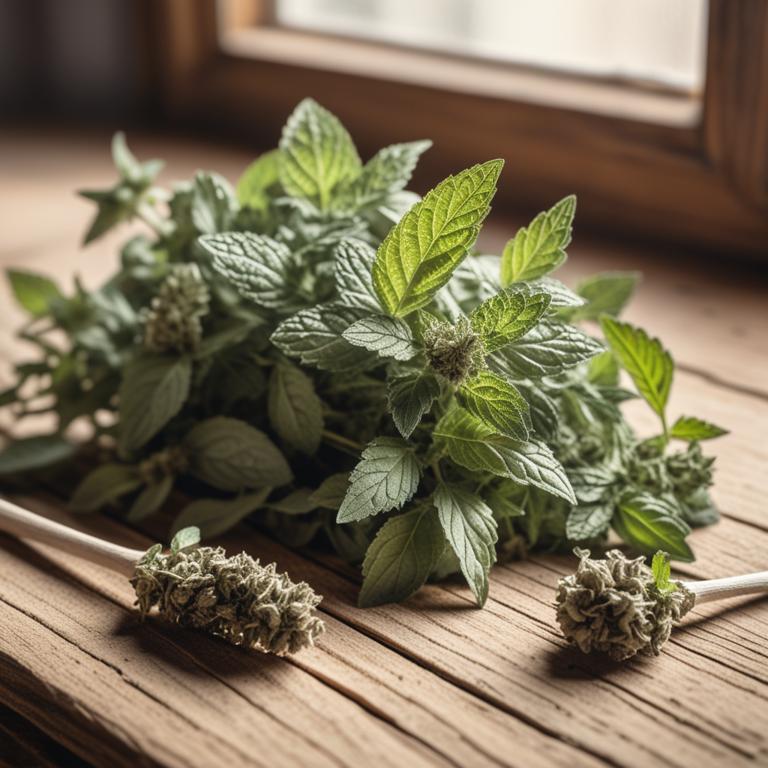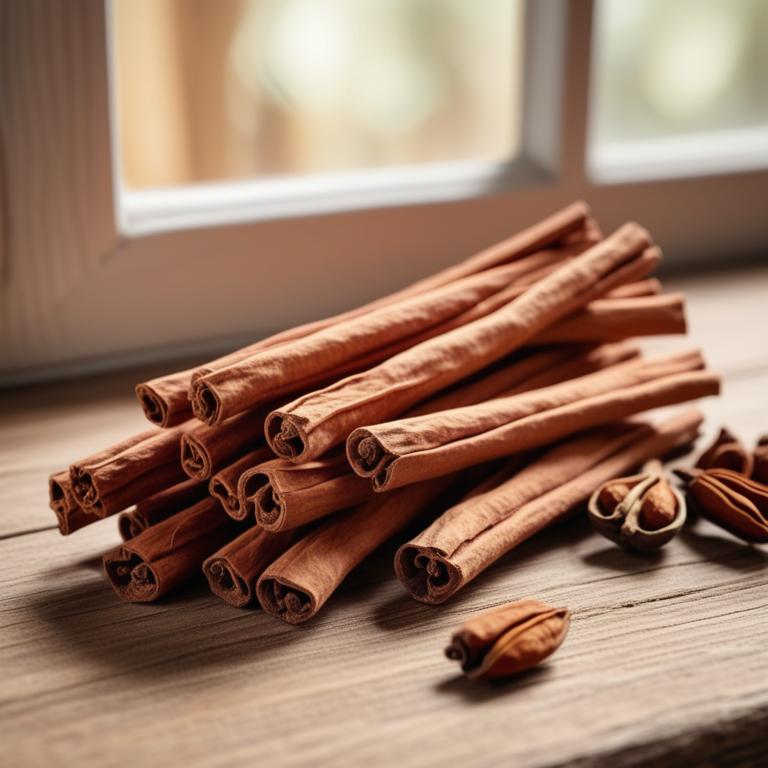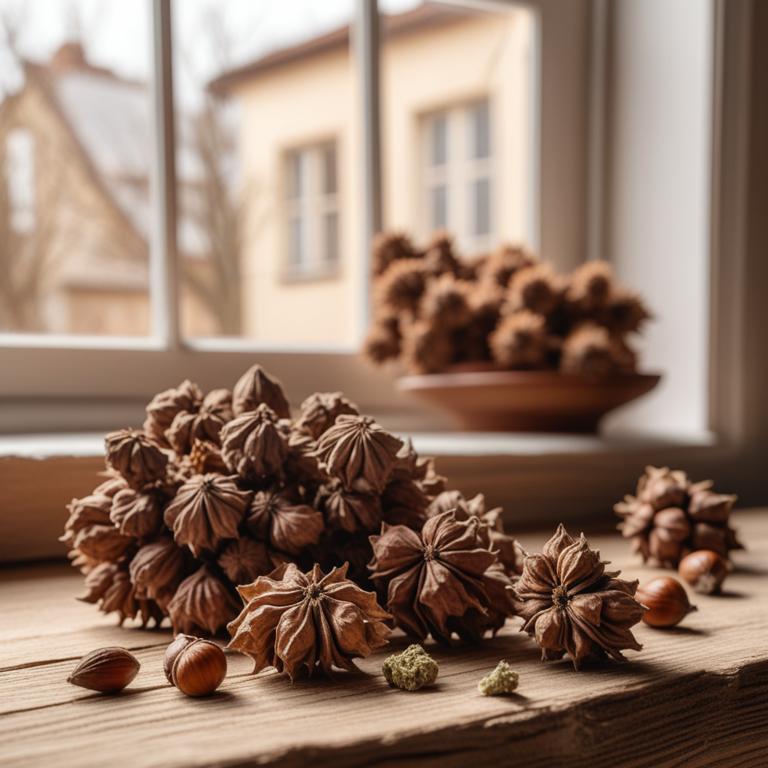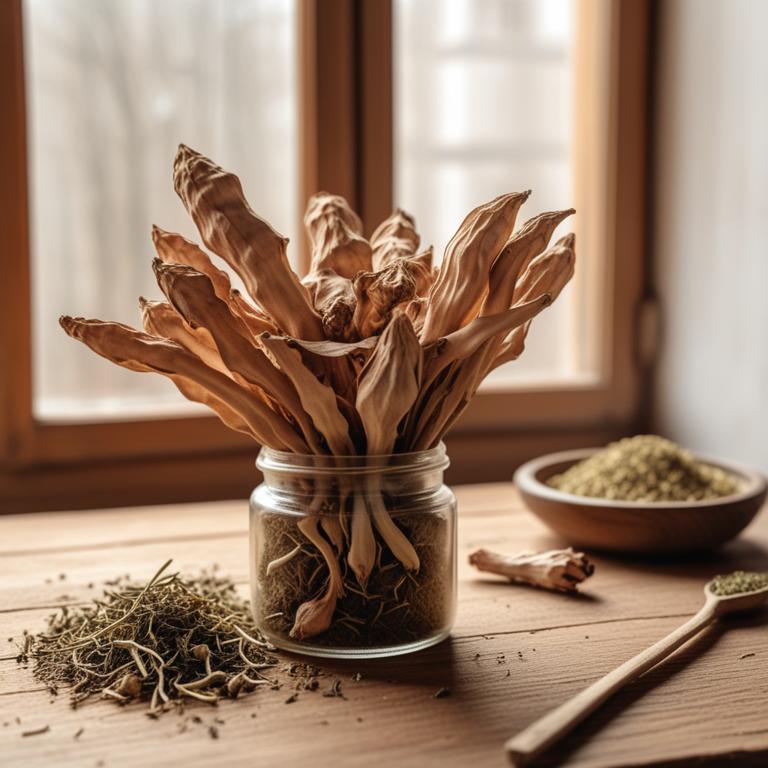Updated: Dec 1, 2024
Causes and Herbal Solutions for Flatulence Relief
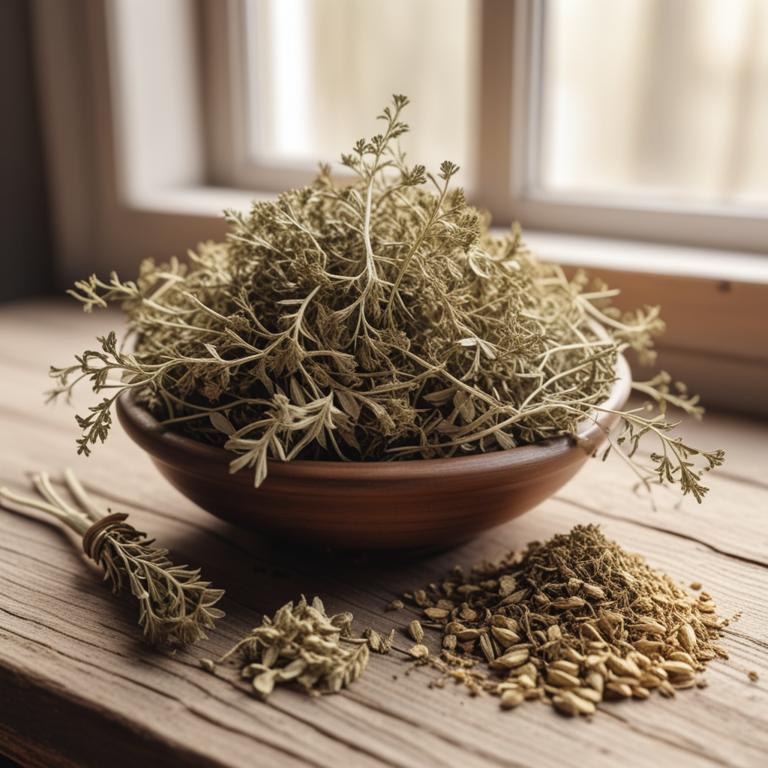
Flatulence, or passing gas, is a natural bodily function, but excessive passing of gas can be embarrassing and uncomfortable.
It can affect your daily life, causing you to feel self-conscious in social situations or disrupting your sleep. But what causes it?. Eating foods that are hard to digest, such as beans, cabbage, and broccoli, can lead to gas buildup in the stomach. Other causes include swallowing air, drinking carbonated beverages, and having certain medical conditions like irritable bowel syndrome.
Fortunately, there are some herbal remedies that can help alleviate flatulence. Herbs like peppermint, ginger, and fennel have natural anti-inflammatory properties that can soothe the digestive system and reduce gas. These herbs can be consumed in various forms, such as teas, capsules, or essential oils. Drinking peppermint tea after a meal can help relax the digestive muscles and reduce gas. Ginger tea can also help to warm the digestive system and ease discomfort.
Fennel tea, on the other hand, can be made by steeping fennel seeds in hot water, releasing their natural oils and providing quick relief.
Table of Contents
- What are the underlying causes of flatulence?
- What are the benefits of incorporating herbs into flatulence treatment?
- What are the top medicinal herbs for treating flatulence?
- What are the most widely used herbal remedies for the relief of flatulence?
- What herbs may contribute to increased flatulence in certain individuals?
- FAQ
What are the underlying causes of flatulence?
The main causes of flatulence are certain foods that our bodies can't digest properly.
One of the main culprits is beans, which contain sugars that our gut bacteria feed on, producing gas as a byproduct. This is why eating beans, such as kidney beans or black beans, can lead to a bloated feeling and flatulence. Another common cause is broccoli, which contains raffinose, a complex sugar that our bodies can't break down. When our gut bacteria try to digest raffinose, they produce gas, leading to flatulence.
Onions and garlic are also known to cause gas, as they contain compounds that our bodies can't digest. When we eat these foods, our gut bacteria break them down, producing gas as a result. Wheat, especially in people with gluten intolerance or sensitivity, can also cause flatulence. This is because the body has trouble digesting the gluten in wheat, leading to gas production. Lastly, corn, especially in people who are not used to eating it, can cause flatulence.
Corn contains a type of sugar called fructan, which can be difficult for some people to digest, leading to gas and bloating.
What are the benefits of incorporating herbs into flatulence treatment?
Using herbs for flatulence can be a great natural solution.
These herbs have anti-inflammatory properties that help reduce swelling and irritation in the digestive tract, which can cause discomfort. They also have carminative properties, which means they help release trapped gas from the body. This can provide quick relief from bloating and discomfort.
Additionally, these herbs can help regulate digestion and improve the overall health of the gut. By reducing inflammation and improving digestion, they can also help prevent future episodes of flatulence. Some of these herbs are also known to have antibacterial properties, which can help fight off infections that can cause gas and bloating. As a result, using these herbs can help alleviate symptoms of flatulence, making it a good alternative to over-the-counter medications.
They are also generally safe and easy to consume, making them a convenient solution for those who experience frequent or severe flatulence.
What are the top medicinal herbs for treating flatulence?
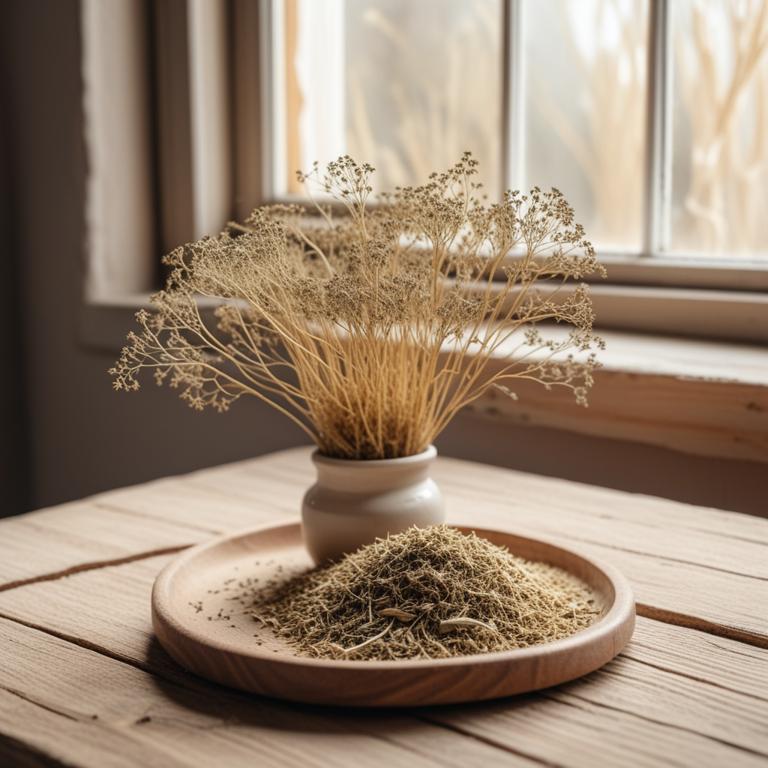
Herbs can be a helpful remedy for flatulence.
Foeniculum vulgare, also known as fennel, is a popular choice due to its ability to ease digestive discomfort and reduce gas. The seeds of the fennel plant contain compounds that help to relax the muscles in the digestive tract, allowing gas to pass through more easily. Cuminum cyminum, or cumin, is another herb that can provide relief from flatulence. Cumin seeds contain oils that have anti-inflammatory properties, which can help to soothe an irritated digestive system and reduce symptoms of bloating and gas. Zingiber officinale, or ginger, is a natural anti-inflammatory that can help to calm digestive issues.
Ginger has been used for centuries to treat nausea and bloating, making it a popular choice for people experiencing flatulence. Coriandrum sativum, or coriander, is similar to cumin and has a similar effect on the digestive system. The seeds of the coriander plant contain compounds that can help to reduce gas and ease digestive discomfort. Peumus boldus, or boldo, is a lesser-known herb that can also be effective in reducing flatulence. Boldo leaves contain compounds that can help to relax the muscles in the digestive tract and reduce inflammation in the digestive system. All of these herbs can be consumed in various forms, such as teas, capsules, or seeds, and can be used in combination with other natural remedies to provide relief from flatulence.
They can be a useful addition to a person's diet, especially for those who experience recurring or severe digestive issues.
What are the most widely used herbal remedies for the relief of flatulence?
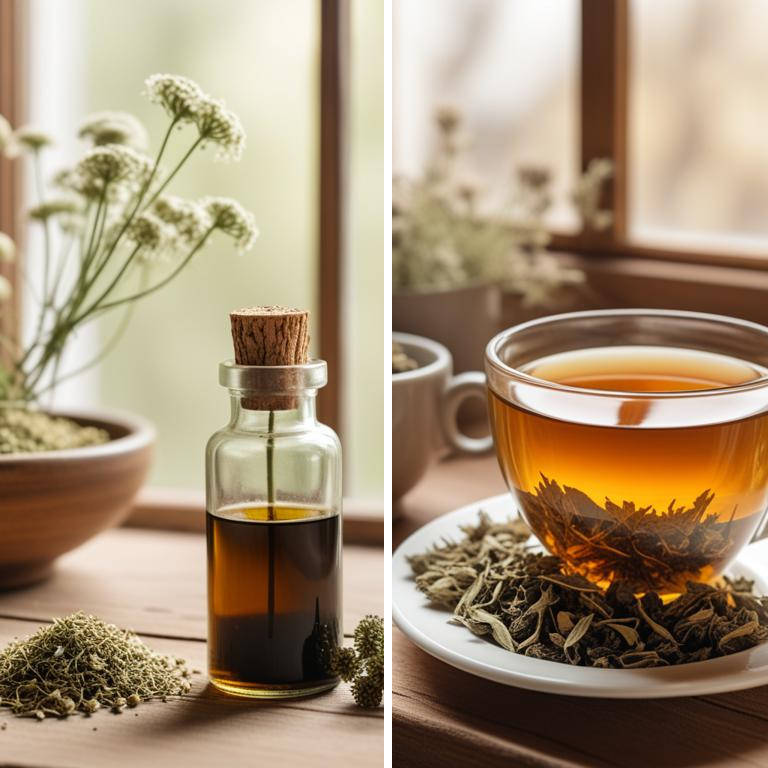
Herbal preparations can be super helpful in reducing flatulence.
A decoction is a liquid solution made by boiling herbs in water, which makes their active ingredients more easily absorbed by the body. This helps to ease digestive issues and reduce gas. Infusions are similar to teas, but they're made with a higher ratio of herbs to water, which allows the active ingredients to release their potency more effectively. This can help to calm the digestive system and prevent gas from building up. Tinctures are concentrated liquid extracts of herbs, which can be taken in small amounts to stimulate digestion and reduce bloating.
They're often used to target specific issues, like indigestion or IBS. Herbal teas, like peppermint and chamomile, have a soothing effect on the digestive system and can help to calm down the muscles in the gut, reducing the amount of gas released. An herbal enema is a liquid solution inserted into the rectum to directly target the digestive system. It can be used to remove built-up toxins and ease digestive issues, including flatulence. Some herbs, like activated charcoal, can help to absorb excess gas and toxins. These herbal preparations work together with the body to ease digestive issues and reduce flatulence.
They're a natural and gentle way to target the root causes of the problem, rather than just masking the symptoms.
Additional Resources:
What herbs may contribute to increased flatulence in certain individuals?
If you experience flatulence, it's a good idea to steer clear of certain herbs that can make the problem worse.
Trigonella foenum-graecum, also known as fenugreek, can be particularly troublesome. This herb contains compounds that can stimulate the digestive system, causing gas and bloating in some people. Glycyrrhiza glabra, or licorice root, might seem like a harmless ingredient, but its active compound, glycyrrhizin, can cause the body to hold onto water, leading to swelling and discomfort in the digestive tract. This swelling can put pressure on the rectum, causing gas to build up and release as flatulence. Another herb to be cautious with is Cnicus benedictus, also known as blessed thistle.
Some people find that this herb triggers digestive issues, including bloating, gas, and discomfort. The reason behind this is unclear, but it's thought to be related to the herb's ability to relax the muscles in the digestive system, allowing gas to build up. Silybum marianum, or milk thistle, might seem like a beneficial herb due to its antioxidant properties, but it can also cause digestive problems in some individuals. The exact reason is unknown, but it's believed that the herb's active compounds can alter the balance of gut bacteria, leading to an increase in gas production. Anethum graveolens, or dill, is often used to aid digestion, but for some people, it can have the opposite effect. The herb's essential oils can cause the digestive system to become overactive, leading to an increase in gas production and flatulence.
If you experience discomfort after consuming dill, it's best to avoid it and look for alternative herbs that agree with your digestive system.
FAQ
Are there any specific herbs that can prevent flatulence?
Ginger and peppermint are herbs that can help ease digestion and reduce flatulence.
They have natural properties that calm the stomach and relax muscles, making it easier for gas to pass through.
Drinking ginger tea or adding peppermint to your meals may help alleviate discomfort and bloating caused by trapped gas.
Is it safe to use herbal remedies for flatulence during pregnancy?
If you're experiencing gas and bloating during pregnancy, some herbal remedies might seem like a natural solution.
However, it's best to be cautious. Certain herbs, like peppermint and ginger, are often used to ease digestive issues, but their safety during pregnancy hasn't been thoroughly studied.
It's always a good idea to know what you're putting in your body.
Are there any herbs that can reduce the frequency of flatulence?
Some herbs may help reduce the frequency of flatulence.
Fennel, for example, is known to ease digestion and calm the stomach. Peppermint also has soothing effects that can help relax the muscles in the digestive tract, reducing gas and discomfort.
These herbs can be consumed as tea or added to meals.
Can i combine different herbal remedies for flatulence?
You can combine different herbal remedies for flatulence, but be cautious.
Some herbs can interact with each other or increase side effects.
For example, combining peppermint oil with ginger may ease digestion, but be aware that peppermint can slow down digestion and ginger can make you more sensitive to stomach acid.
Related Articles
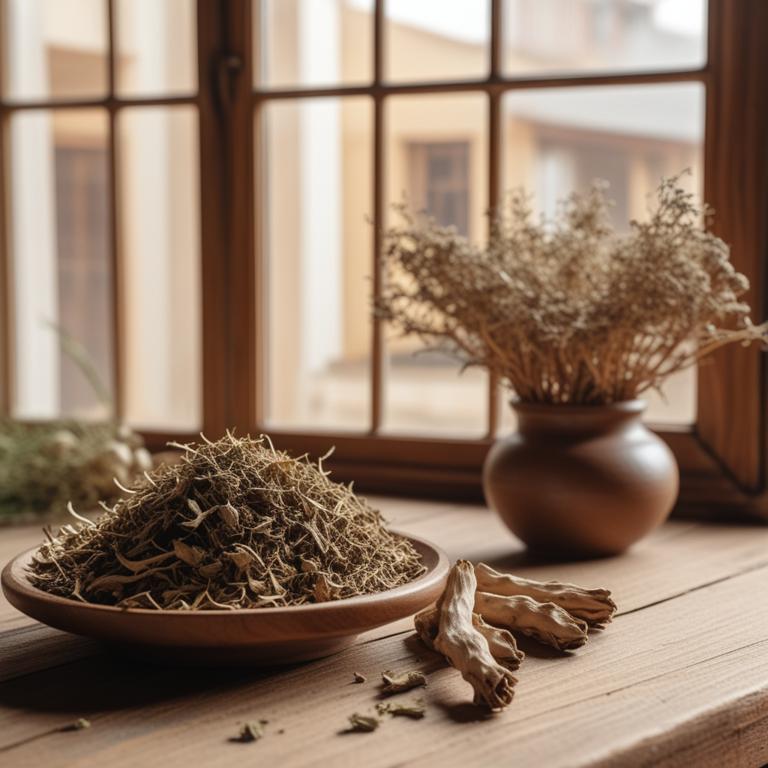
Causes, Symptoms, and Herbal Relief for Acid Reflux
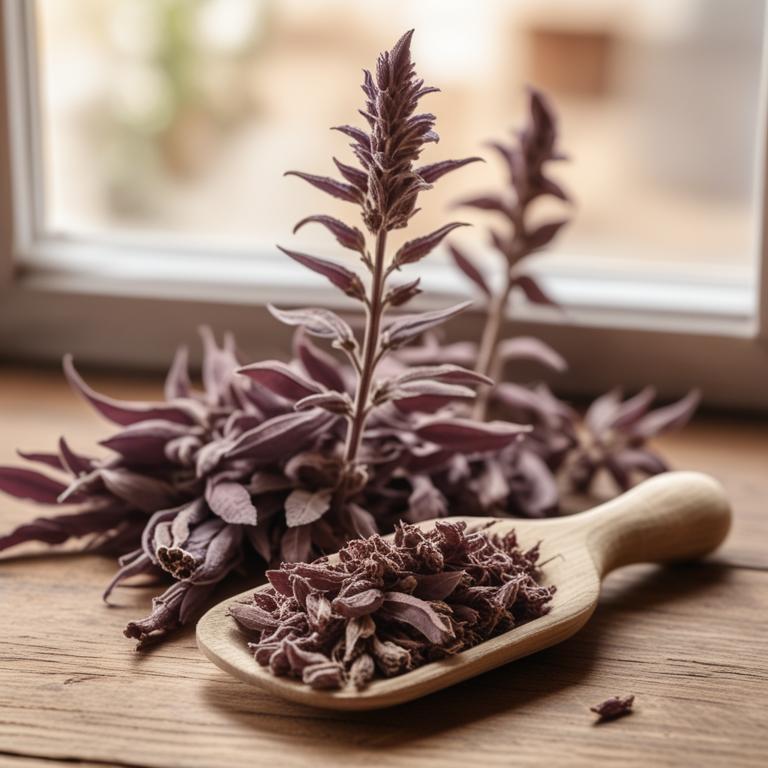
Overeating: The Causes and Medicinal Herbs for a Healthier You
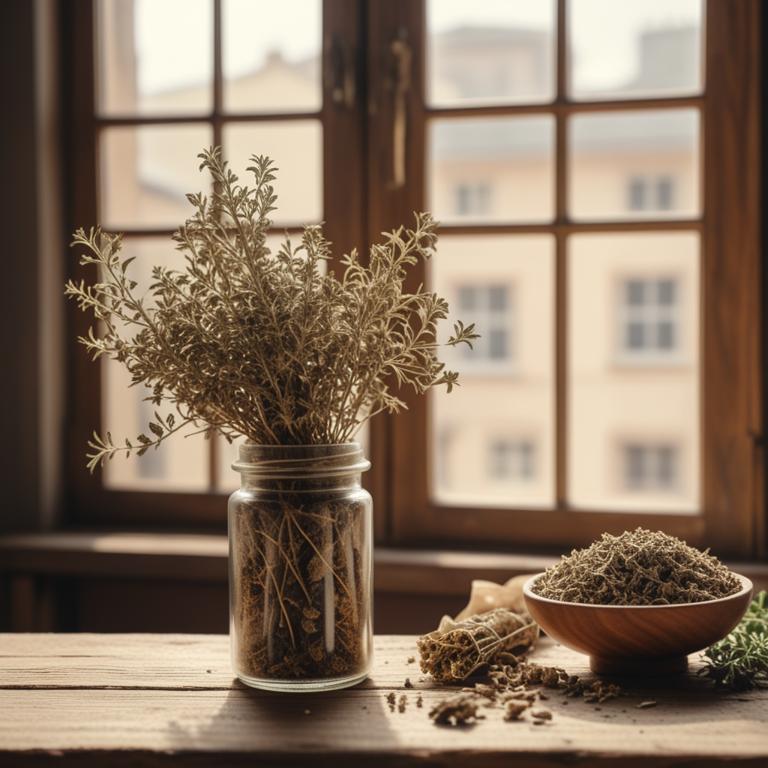
The Causes and Herbal Preparations of Stomach Discomfort
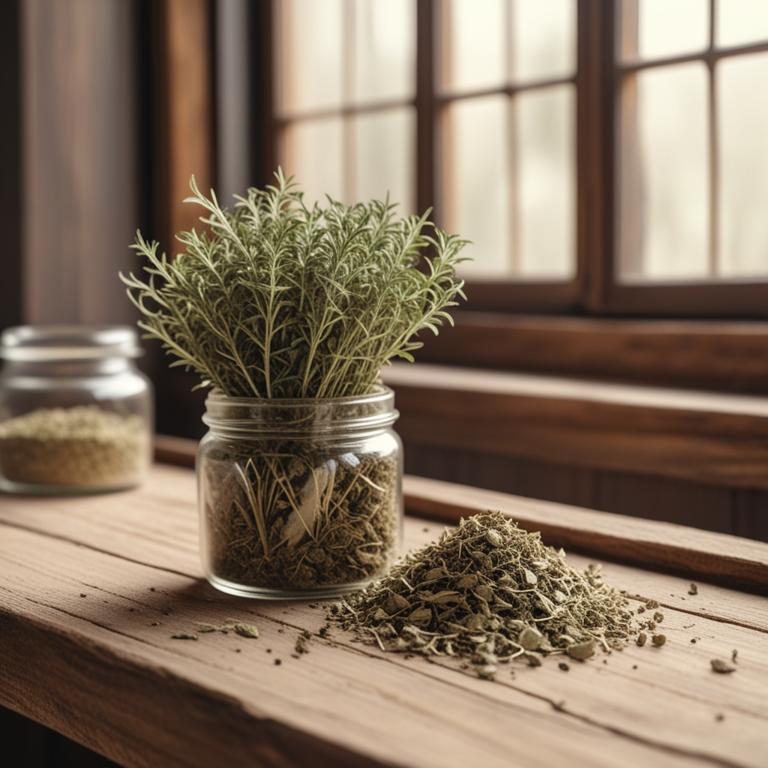
The Causes, Remedies, and Herbal Solutions for Bloating
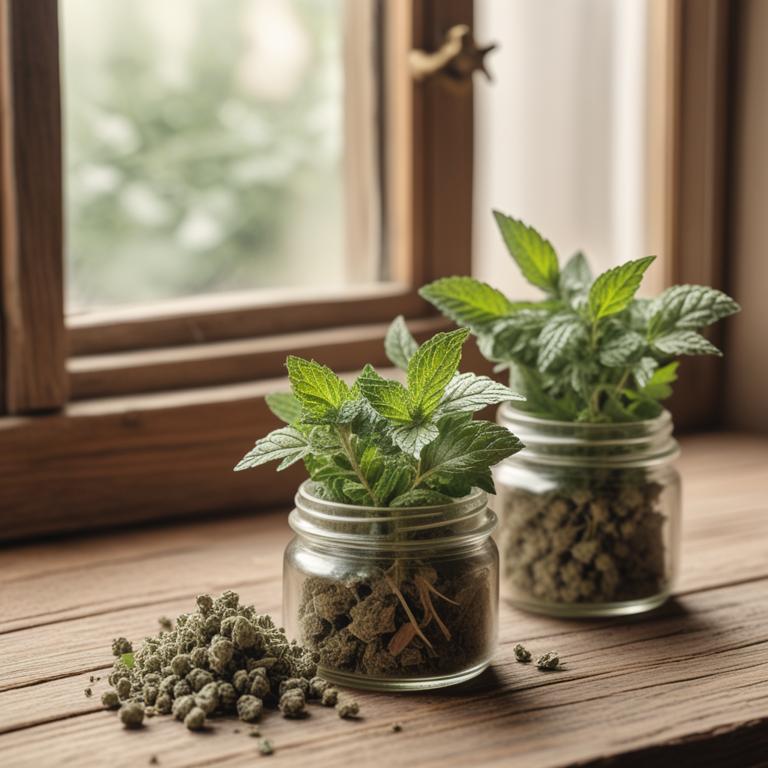
Painful Swallowing: Causes, Medicinal Herbs, and Alternative Preparations for Comfort
